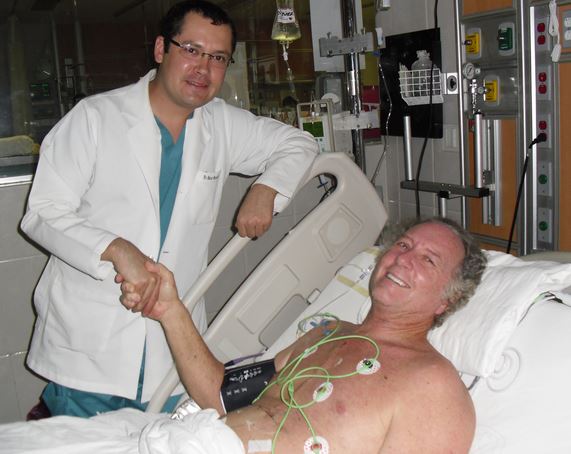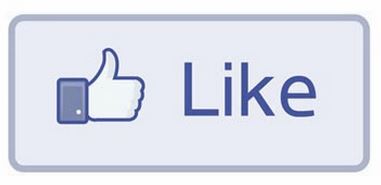September 15th, 2014 by Dr. Val Jones in Opinion
2 Comments »
 Judging from recent articles, surveys, and blog posts, the medical profession is remarkably demoralized. Typical complaints range from “feeling like a beaten dog” to “living in humiliating servitude,” to being forced to practice “treadmill medicine.” Interestingly, the public response to these complaints is largely indifferent. The prevailing attitude (if the “comments sections” of online articles and blog posts are representative) seems to be unsympathetic: “Poor doctors, making a little less income and not being treated like gods anymore? You have to do extra paperwork? You have to work long hours? Welcome to the real world, you whiners!”
Judging from recent articles, surveys, and blog posts, the medical profession is remarkably demoralized. Typical complaints range from “feeling like a beaten dog” to “living in humiliating servitude,” to being forced to practice “treadmill medicine.” Interestingly, the public response to these complaints is largely indifferent. The prevailing attitude (if the “comments sections” of online articles and blog posts are representative) seems to be unsympathetic: “Poor doctors, making a little less income and not being treated like gods anymore? You have to do extra paperwork? You have to work long hours? Welcome to the real world, you whiners!”
But thank goodness that practicing medicine is more nuanced than the Facebook stream of hostility that we are subjected to on a daily basis. If patients spoke to me the way online comments read, I’d surely have quit medicine years ago. But my reality is that patients are generally grateful, attentive, and respectful. This could be because I work in inpatient rehabilitation medicine, a place where patients are screened for motivation to participate in their care, but I don’t think that’s the whole story. I have experience working in other settings across the country (including Emergency Departments), and I have found a significant number of good-natured, engaged patients there too.
I think that to some degree our attitudes shape our work environments. Patient and peer dispositions are in part a reflection of our own. Try approaching a frightened, sick patient with an arrogant, dismissive tone and see how your professional relationship with them (and their families) develops. There is a negative cascade that physicians can trigger (perhaps unwittingly) when they are rushed, curt, or inattentive. Beginning every new patient relationship with a caring, respectful, detailed history and physical exam lays a foundation of trust for future interactions. Once you have established that positive rapport, the daily grind (along with what my friend, Dr. Steve Simmons, has nicknamed ‘C.R.A.P.P.’ – Continuous Restrictive And Punitive Paperwork) is much more bearable.
As physicians we have the power to make our careers as meaningful or soul-sucking as we choose. Reducing the C.R.A.P.P. in our work lives can help (I’ve tried outpatient, “concierge style” practices and inpatient locum tenens assignments with good success), but that’s not the most important factor in enhancing work satisfaction. The relationships built by allying ourselves with patients, and shepherding them through this broken system, are where the rewards lie. They hold the keys to our professional fulfillment because nothing can beat the joy of helping those in need.
How do I know that patient appreciation is enough to make medicine worthwhile?
Because I still don’t hate being a doctor.
September 5th, 2014 by Dr. Val Jones in Health Policy, Opinion
1 Comment »
 As a physician who openly despises many aspects of current EMRs (see “How An EMR Gave My Patient Syphilis” or “The Medical Chart: Ground Zero For The Deterioration Of Patient Care” ) I recognize that they are here to stay. And so, since we’re all stuck with these digital middlemen, I have some suggestions (based on popular social media platform functionality) for making them better.
As a physician who openly despises many aspects of current EMRs (see “How An EMR Gave My Patient Syphilis” or “The Medical Chart: Ground Zero For The Deterioration Of Patient Care” ) I recognize that they are here to stay. And so, since we’re all stuck with these digital middlemen, I have some suggestions (based on popular social media platform functionality) for making them better.
1. Likes. Healthcare providers should be able to “vote up” an excellent note in the medical record. Let’s face it, not all doctors are equally good at documentation. Untold hours of our time are spent trying to cull through pages of auto-populated, drop-down-box checks to figure out what’s actually going on with a patient on a particular day. Once in a while you stumble upon some comprehensive free text that a physician took the time to type after a previous encounter, and suddenly everything becomes clear. If there were a way to flag or “like” such documents, it would help other readers orient themselves more quickly to a patient’s history. A “liking” system is desperately needed in EMRs and would be a valuable time saver, as well as encouragement to physicians who document notes well. Hospitals could reward their best note makers with public recognition or small monetary bonuses.
2. #Hashtags. Tagging systems are sorely lacking in medical records systems, which makes them very difficult to search. Patients make multiple visits for various complaints, often with numerous providers involved. If physicians had the ability to review notes/records unique to the complaint that they are addressing, it would save a lot of time. Notes could be tagged with keywords selected by the author and permanently recorded in the EMR. This would substantially improve future search efforts. Even if the EMR generated 10 search terms (based on the note) and then asked the physician to choose the 3 most relevant to the current encounter, that would be a step in the right direction.
3. Selfies. Medical records would benefit from patient-identifier photographs. In a busy day where 20-30 patients are treated and EMR notes are updated after the patients have gone home, a small patient photograph that appears on each documentation page will serve the physician well in keeping details straight. Patients should be able to upload their favorite portrait to the EMR if the standard one (perhaps taken during the intake process) is not acceptable to them. In my experience, nothing brings back physical exam and history details better than a photograph of the patient.
4. Contextual links. All EMRs should provide links to the latest medical literature (on subjects specifically related to the patient’s current diseases and conditions) in a module on the progress note page. UpToDate.com and other reference guides could easily supply the right content (perhaps based on diagnosis codes). This will help physicians practice evidence-based medicine and keep current with changes in recommended treatment practices.
5. Microblogging. Sometimes there are important “notes to self” that a physician would like to make but don’t need to be part of the official medical record. EMRs should provide a free-text module (like a digital sticky note) for such purposes. These sticky notes should not be admissible in court as part of the medical record, and should not be uploaded to the cloud. Content included in these notes could include social information (patient’s daughter just had a healthy baby girl), hunches (patient looks slightly pale today – will check H&H next time if no change), and preliminary information (remember to review radiology result before calling patient next Tues).
It is my hope that EMRs will slowly adopt some best practices from top social media platforms. After all, if millions of users are effectively using voting, tagging, linking, searching and imaging in their daily online lives, it only makes sense to capitalize on these behaviors within the constraints of the medical environment. Maintaining strict confidentiality and appropriate professional boundaries (often missing in the social media world at large) is certainly possible with EMRs. Let’s build a better information capture and retrieval process for the sake of our patients, and our sanity.
***
At least one EMR is already providing #3 and #5 as part of its software: see MDHQ.com Are you aware of any others already implementing these ideas?
 Judging from recent articles, surveys, and blog posts, the medical profession is remarkably demoralized. Typical complaints range from “feeling like a beaten dog” to “living in humiliating servitude,” to being forced to practice “treadmill medicine.” Interestingly, the public response to these complaints is largely indifferent. The prevailing attitude (if the “comments sections” of online articles and blog posts are representative) seems to be unsympathetic: “Poor doctors, making a little less income and not being treated like gods anymore? You have to do extra paperwork? You have to work long hours? Welcome to the real world, you whiners!”
Judging from recent articles, surveys, and blog posts, the medical profession is remarkably demoralized. Typical complaints range from “feeling like a beaten dog” to “living in humiliating servitude,” to being forced to practice “treadmill medicine.” Interestingly, the public response to these complaints is largely indifferent. The prevailing attitude (if the “comments sections” of online articles and blog posts are representative) seems to be unsympathetic: “Poor doctors, making a little less income and not being treated like gods anymore? You have to do extra paperwork? You have to work long hours? Welcome to the real world, you whiners!”

 As a physician who openly despises many aspects of current EMRs (see “
As a physician who openly despises many aspects of current EMRs (see “









